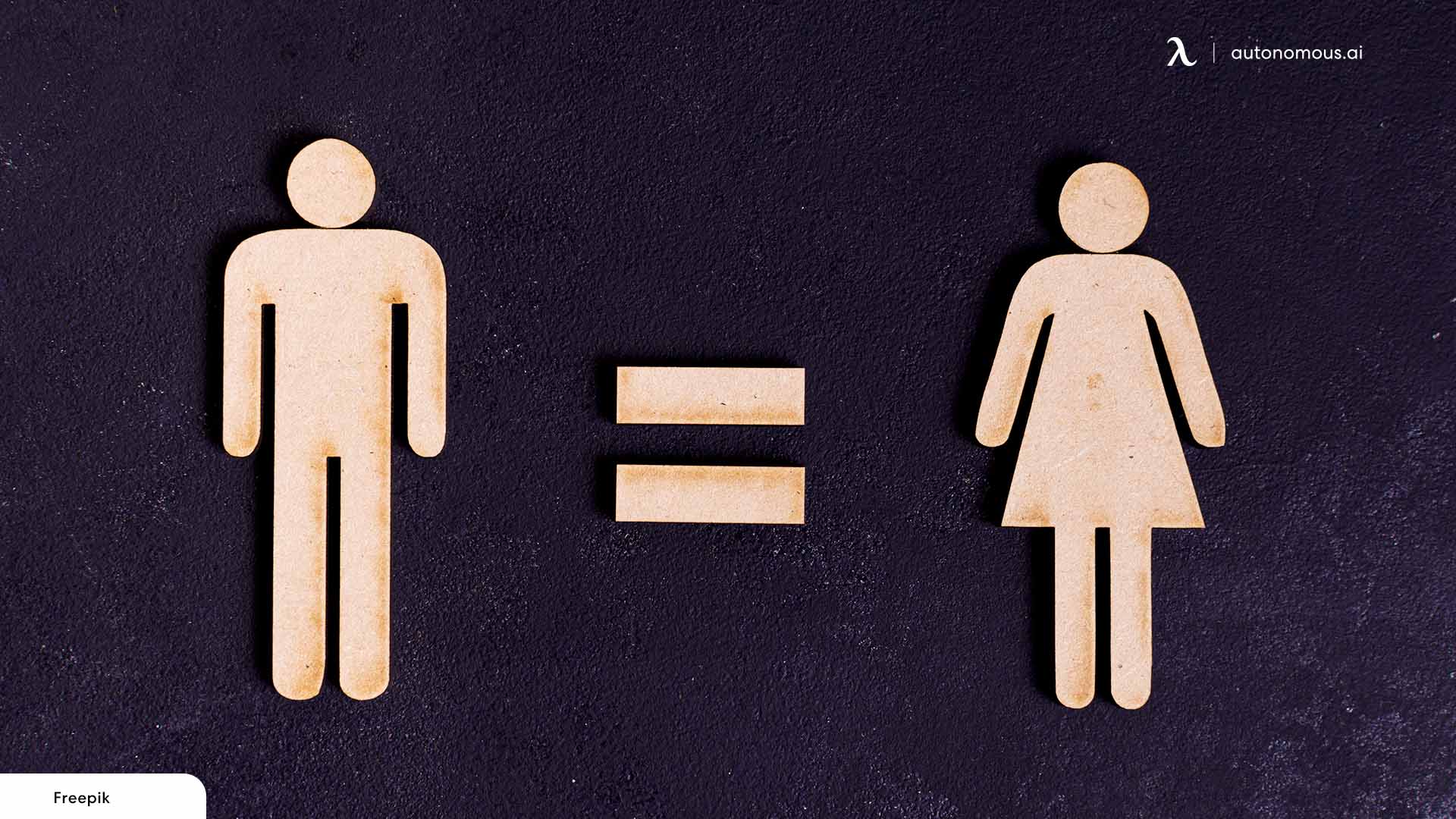/https://storage.googleapis.com/s3-autonomous-upgrade-3/static/upload/images/new_post/facing-the-gender-gap-in-workplace-4001-1645065830071.jpg)
Many firms aim for gender equality among their employees. The United States does face a great deal of inequality in the workplace despite decades of progressive efforts. During the past few years, many businesses, government agencies, and employees have worked together to address gender gaps in the workplace, wage discrepancies, etc.
Women and men are also treated equally by the organization. Modern businesses need to understand all current gender gap at work laws and their obligations to employees, as it is one of the most important topics in modern business. We’ll try explaining everything you need to know about the gender gap in the workforce, starting at the beginning.
Gender Inequality: What is It?

Companies that practice gender equality treat men and women equally. A business may overlook many implications of gender diversity in the workplace due to long standing company culture, personal attitude, or confusion over the law. Your company needs to recognize that men and women should be treated equally via appropriate workplace etiquette. Gender gap in the workplace would help if you did the following:
- Comparable roles that offer equal pay and benefits.
- Progression and promotion are equal for all.
- There shouldn't be any discrimination against employees because of the gender they identify with or because they are undergoing gender reassignment.
Gender Gap in the Workplace in 2022

Uneven wages aren't the only sign of gender inequality in the workplace. There are many barriers facing women and women of color, especially black women, LGBTQ+ women, and women of color who desire leadership positions. Women of color often face racial, ethnic, and gender microaggressions.
Women need to have equal career advancement opportunities and protection from discrimination or miscommunication in the workplace. Transparent salaries, flexible schedules, respectful communication in the workplace, training opportunities for women, and a focus on mental health and well-being are tangible ways to achieve this ideal. By forming allies, speaking out against instances of discrimination, and giving honest feedback to managers, employees can play their part in ensuring gender equity on all fronts.
Uneven pay, disparities in promotions, sexual harassment, and racism are all types of gender inequality at work. There are subtle forms of this: such as fewer opportunities for mothers and higher rates of burnout among women.
Women and men still do not earn equal wages. Black and Latina's women earned even less than women in 2020, earning only 84 percent of what men earned for the same job. Over the last 25 years, this gender gap in the workplace has remained stable, shrinking by just 8 cents. In addition to "sticky floors," which result from conventional social norms that keep women from moving to higher-paying roles, unequal access to education, and discrimination, many other causes are to blame.
Moreover, women, particularly those living intersectional realities such as transgender or immigrant women, are often wary of negotiating pay and may be punished if they do so. Recent research has challenged this notion, finding that women ask for raises just as often as men but receive them less frequently compared to men who ask for them.
How Do You Promote Gender Equality at Your Workplace?

A workplace can be unfairly gendered if it hires or trains only one gender for a particularly important role (perhaps because we perceive it as 'women's work' or 'men's work'). Employees may also be concerned about being sexually harassed or treated unfairly during pregnancy or motherhood. The ways that can help promote gender equality and ideal relationship management in the workplace are:
- Promote awareness and fair behavior by providing training.
- Showcase the careers or successful women in your company - both internally and via the media - and ask senior women to mentor younger women or understand the characteristics of gen z.
- Ensure managers fully support fair pay and work/life balance policies.
Workplace gender equality: why is it important? This ensures that the productivity of a business is as high as possible by ensuring a fair working environment. In turn, this ensures the growth of the national economy. Unfair barriers do not hinder the progress of the nation.
In light of this, how will you ensure that your business has a policy preventing gender gap in the workplace and promoting gender equality? Don’t forget about your male employees, even though this is related to women's inequality in the workplace. If you want to reconsider your business stance, consider the following plan of action:
- See if barriers prevent women from attaining more senior roles in your job specifications.
- Transparently pay yourself. Ensure women are not paid less for the same roles in a small or medium business with fewer than 250 employees.
- Equally, promote work-life balance for men and women.
- All employees should be trained and mentored on new-age topics like gen y characteristics.
- Put in place a policy against harassment to prevent it from ever occurring in your business.
Shortlist more candidates for top positions and appoint diverse interviewers

According to research, recruiters "are forced to think beyond the gender stereotypes associated with a role" when faced with an extended shortlist of candidates to fill open positions. Ensure that you train your Human Resources managers to make longer shortlists when hiring, especially for roles dominated by men, so that more women get hired in top positions. When reviewing resumes and conducting interviews, ensure that interviewers are diverse.
Conduct an audit of salaries and make salaries transparent
Conduct an audit at the company level to ensure equal pay for men and women. Address any wage gaps - gender gap at work - found and adjust salaries accordingly.
Offer employees greater flexibility in work schedules
Remote work has become equally effective as on-site work because of the pandemic. Flexible work hours have proven to be an "important enabler" of women retaining their jobs by providing a balance between their work and personal lives. The hybrid model of your organization means avoiding presenteeism since men who attend office hours tend to be more visible and, therefore, disproportionately rewarded.
Plan and provide coaching sessions for female employees

In the face of Covid-19, women are disproportionately affected, and coaching enables them to remain in the workforce and advance. Coaching, however, is not accessible equally to women and men.
Assist women in developing the mindsets and skills they need to excel, especially in leadership positions, with regular coaching sessions. BetterUp Labs coached 440 women from various organizations, and we discovered that the coaching sessions helped them become more self-aware, develop inclusive leadership skills, and improve the overall employee experience.
Subscribe for a 10% discount on your first order.
Sign up for our weekly update and be the first to know about our specials & promotions.
Faire connaitre

/https://storage.googleapis.com/s3-autonomous-upgrade-3/production/ecm/240417/april-10-off-offer-2024-1920x540-CTA.jpg)
/https://storage.googleapis.com/s3-autonomous-upgrade-3/production/ecm/240417/april-10-off-offer-2024-720x1200-CTA.jpg)
/https://storage.googleapis.com/s3-autonomous-upgrade-3/production/ecm/240415/bulk-order-apr-2024-offer-720x1200-CTA-min.jpg)
/https://storage.googleapis.com/s3-autonomous-upgrade-3/production/ecm/240415/pod-offer-apr-2024-720x1200-CTA.jpg)
/https://storage.googleapis.com/s3-autonomous-upgrade-3/static/upload/images/new_post_author/admin-1.png)